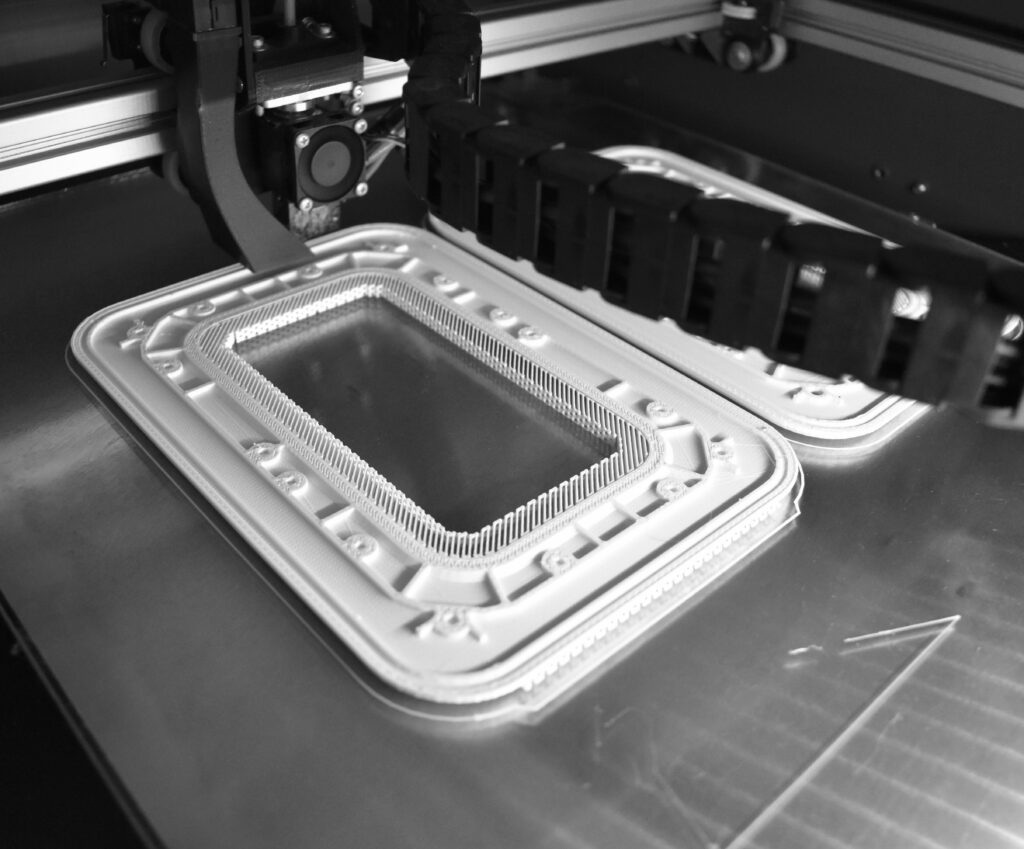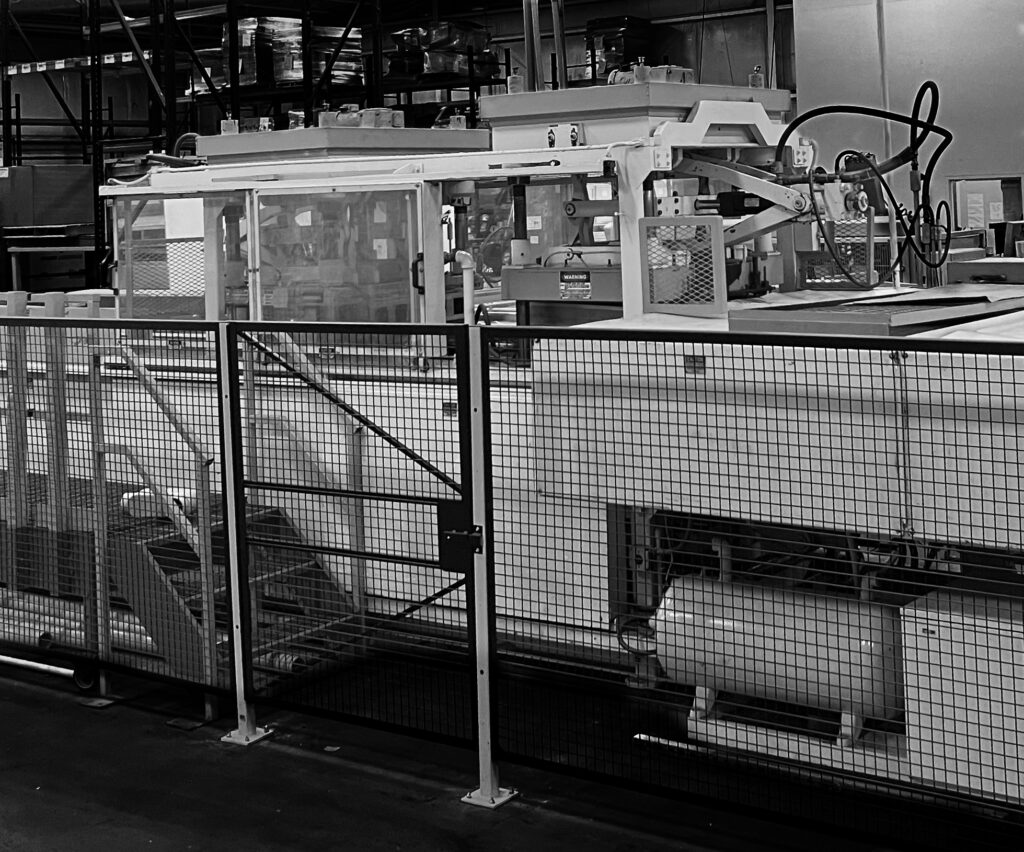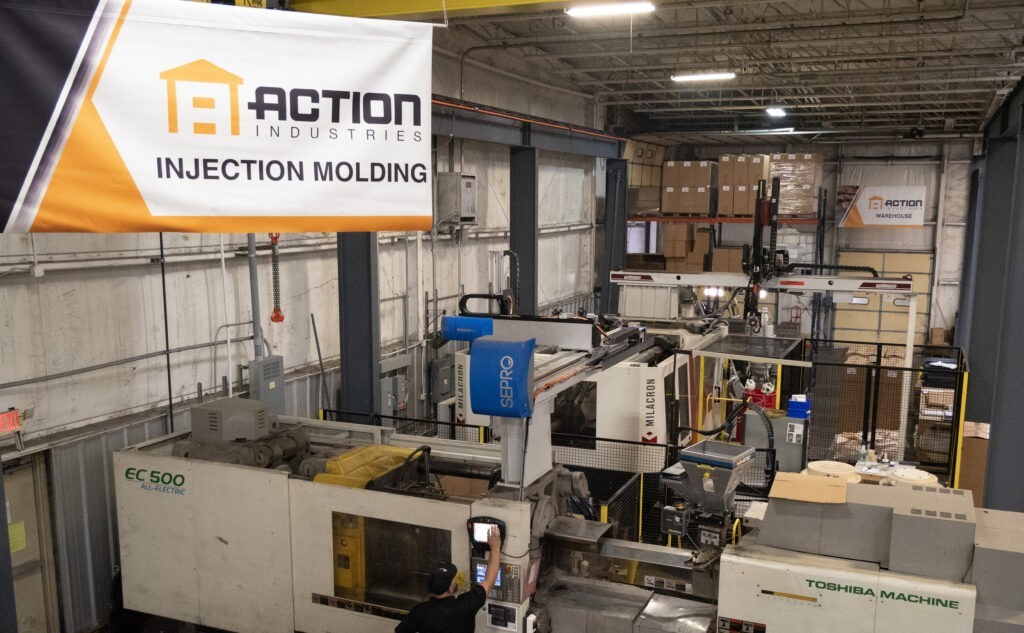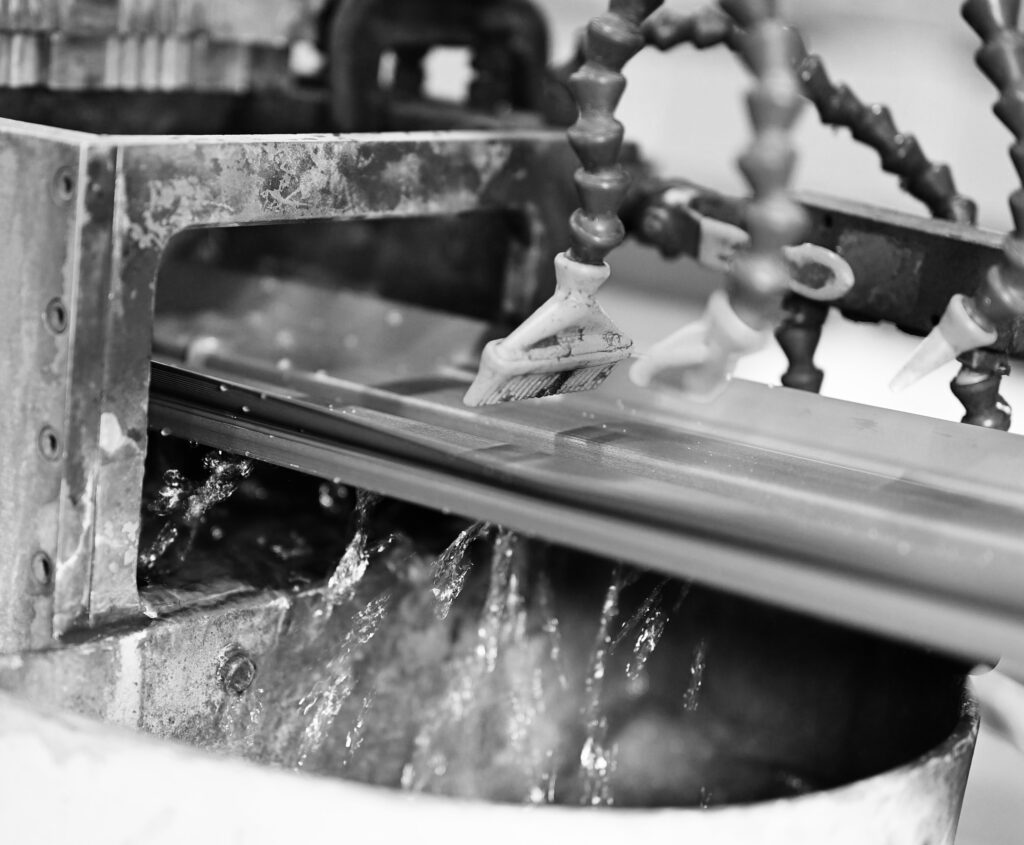Manufacturing
Action’s custom manufacturing capabilities can develop a range of unique parts for your products—giving them a tailored design to fit your unique needs and quality to endure industry demands.

Rapid Prototypes
Action’s team provides expert assistance in the design phase with Auto CAD engineering and ASTM standard tests that allow you to approve materials and designs before production begins. Design changes can be made inexpensively and quickly in the prototyping phase so you’re never left with a stockpile of inaccurate parts.

Thermoforming
We use thermoforming processes to create and maintain an extensive portfolio of decorative window inserts, including the industry’s latest shapes and designs. New designs can be made for minimal upfront costs.

Injection Molding
We combine injection molding technology with our stick-welded capability to provide the most flexible and comprehensive window system offering in the industry.

Custom Extrusions
We use the latest plastic and EPDM extrusion techniques along with the highest-performing materials to manufacture all types of custom extrusions exclusively for the garage door market–so we can develop products that work for your specific application.
Materials
Action OEM is part of the Action Industries family.
Need a partner that knows parts? We’re a full-service resource that focuses exclusively on the garage door market.
Learn More